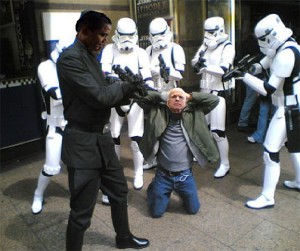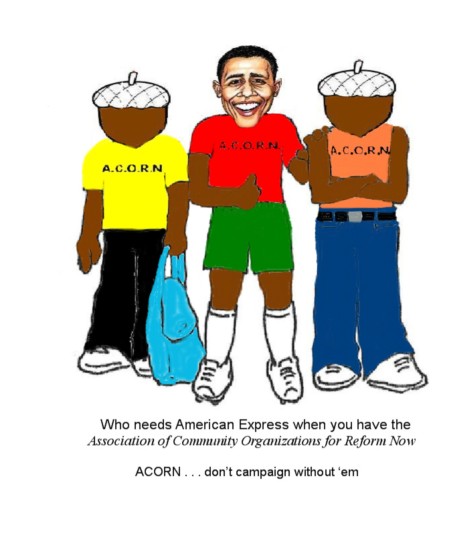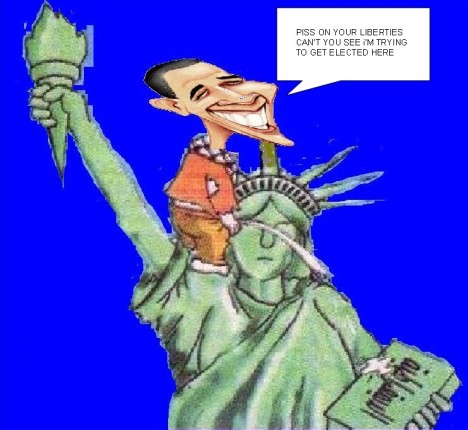
ANCHORAGE — When she appeared for a candidate’s forum in front of a room filled with unionized Alaskan electrical workers during her run for governor in early October 2006, Sarah Palin arrived woefully unprepared. When the union members grilled her on labor policy, Palin faltered. Afterward, a furious Palin berated her staff, recalled two former senior campaign aides who blamed her unwillingness to bone up on workplace issues for the blunder. But just a few weeks later, when Palin jousted with her two main rivals during critical pre-election debates, she was much more at ease. Palin distilled policy questions into simple answers and countered her opponents’ attacks with verbal stiletto thrusts delivered with a sunny smile. When one moderator asked about abortion and pressed about what she would do if her daughter had a child out of wedlock, Palin had a ready answer, defending her anti-abortion stance and deflecting the question toward her male rivals: “I would choose life. And I am confident you will be asking my opponents these same scenarios?”
During Palin’s brief exposure to the high-stakes environment of political debates, she has unnerved both her handlers and her opponents. At times she has been handicapped by her lax approach to learning the nuances of policy and state issues, but she has also projected a Reaganesque ability to offer up concise and to the point answers and charm on camera. “The political landscape here is littered with people who have underestimated Sarah Palin,” said Eric Croft, a former state representative who ran for the Democratic nomination for governor in 2006 and appeared with Palin during several early forums. Palin’s split-personality debate persona — mirrored both in her confident speech to the Republican convention in Minneapolis in early September and in a series of wobbly performances in recent television interviews — poses a challenge for her Democratic opponent, Delaware Sen. Joe Biden, as each approaches Thursday’s nationally telecast vice presidential debate in St. Louis. Biden could face trouble, Alaskan political observers said, if he takes Palin too lightly. But he also has to take care not to be overly aggressive against a candidate who radiates telegenic appeal. “She has a Reagan-like ability to win over audiences. But for someone who cares about issues and facts, it was rather startling to see her gloss over important questions,” said Andrew Halcro, an Alaska businessman who ran as an independent candidate for governor against Palin.
For its part, Sen. John McCain’s campaign appears to be taking no chances that Palin will prepare properly. It flew her Monday to McCain’s Arizona ranch to cram with a coterie of the presidential candidate’s advisors. As she began her run for governor of Alaska, Palin repeatedly proved difficult to prep for a debate, recalled her two former political aides, who had pivotal roles during her campaign but declined to be identified because of their continuing involvement in Alaska politics. Palin, the former aides said, had a sharply limited attention span for absorbing the facts and policy angles required for all-topics debate preparation. Staffers were rarely able to get her to sit for more than half an hour of background work at a time before her concentration waned, preoccupied by cellphone calls and family affairs. “We were always fighting for her attention,” said one of the aides. In mid-October 2006, Palin’s staffers saw a presage of their worries in the first political forum of the campaign season, an event at Anchorage’s 49 Supper Club, where candidates unveiled their stump speeches before a room filled with political players. The former Wasilla mayor breezed through an upbeat speech about “taking back Alaska,” but struggled during a question-and-answer session. “To her credit she gave a lot of ‘I don’t knows,’ ” one former aide recalled. “But it was clear she didn’t start out with a great range of knowledge about Alaskan affairs.” In the weeks that followed, Palin’s senior campaign aides took care not to let her repeat the dismal performance. “I was always frustrated because 30 minutes before game time, I’d want to say, ‘let’s turn off the phone and lock the door. And please calm down,’ ” one of her former aides recalled.
But as time went on, Palin increasingly managed to zero in on the policy issues set before her during debate preparations, and her comfort level rose dramatically. During two final debates broadcast by Alaska public television and an Anchorage news station, Palin appeared to ace her performances, deftly crystallizing her talking points to voters. “If you can sit her down, she has a talent for listening to a policy presentation that is so boring it would bring tears to your eyes,” the aide said. “Then — boom — she will nail it down to its essence.” Palin often toted index cards when she walked out in front of the cameras, cribbing from them as the cameras swiveled while her rivals took their turns. “She’d carry these cards with her like she was cramming for a test,” Halcro said. Her debate strategists also warned Palin not to stray onto such hot-button topics as creationism and same-sex marriage. On questionnaires sent to social conservative activists, Palin backed “intelligent design” alternatives to the theory of evolution and opposed nontraditional unions. But she managed to avoid those subjects during most of the debates. Palin remained so low-key that even her pollster, David Dittman, confessed that he was unaware of her strong Christian conservative tenets. “I didn’t know what she believed in,” he said. “We never had any discussions about it, and from our polls, Alaska voters had the same impression.”
But by the final key televised debates in late October, Palin had grown used to the format, both her aides and rivals recalled. Still using index cards, she had grown breezily confident in her back-and-forth with Halcro and former Alaska Gov. Tony Knowles. Palin had ready answers on tough questions about social concerns such as native needs, abortion and assisted suicide. Sometimes her remarks seemed glib, but she was usually poised and sometimes kicked back at her opponents and her questioners when they took the offensive. Larry Persily, a panelist questioner in the [Alaskan Gubernatorial] campaign’s final televised debate, said Palin flummoxed her rivals “like Muhammad Ali dancing around the ring.” She avoided statements and tough questions that could have impaled her and repeatedly stung at her opponents. And Palin, a former sportscaster, was easily the most comfortable in front of the camera. “She knows television,” said Persily, who participated in other debates and has watched Palin closely for years. “She knows how to look at her interviewer.”
Palin saved her most devastating riposte for the final question of the debate, when Persily asked the three candidates whether they would hire their opponents for a state job. Knowles and Halcro offered halting jokes. But when it was Palin’s turn, she pounced. Smiling at Halcro, who recited reams of statistics by rote, Palin observed that the businessman “would make the most awesome statistician the state could ever look for.” As the debate audience laughed, Palin pivoted to Knowles, who had owned an Anchorage restaurant. “Do they need a chef down in Juneau?” Palin asked, smiling as she turned the verbal knife. “I know Mr. Knowles is really good at that.” Two years on, Halcro and Knowles admit they are still baffled how their mastery of policy and state issues was trumped by Palin’s breezy confidence and feel-good answers. “When you try to prove she doesn’t know anything, you lose, because audiences are enraptured by her,” Halcro said. “And her biting comments give you a sense of how competitive she is. Anybody who doesn’t take her seriously does so at their peril.”
By Stephen Braun and Tom Hamburger, Los Angeles Times Staff Writers
1:45 PM PDT, September 30, 2008
Filed under: Uncategorized | Tagged: 24 Horas, abc, Agri News, Akron Beacon Journal, Al Día, alaska, Algonquin Countryside, Aliquippa, Allegheny Times, Allentown, Allison Park, Altoona Mirror, AP, Arlington Heights Post, Ashland Times-Gazette, Ashtabula Star-Beacon, Aspinwall, Astoria South Fulton Argus, Athens Messenger, Athens Town Crier, Aurora Advocate, Austin Weekly News, Barrington Courier-Review, Beaver, Beaver County Times, Beaver Valley Star, Bedford Times Register, Bell Acres, Belleville News-Democrat, Biden, bill oreilly, Blawnox, Bloomfield News, Bloomsburg, BloomUtoday, Blue, blue states, Bradford, Bradford Woods, Breeze Courier, Bridgeville, Bridgeville News Star, Bridgewater, Brighton Township, Bucks County Courier Times, Buffalo Grove Countryside, Bulgaria Sega, Bureau County Republican, Burlington County Times, Butler, Butler Eagle, Cameron, Cameron County Endeavor, campaign, Carlisle, Cary Grove Countryside, cbs, Center Township, Centerville-Bellbrook Times, Centre Daily Times, Chalfant, Chambersburg, Chester County News, Chester County Press, Chestnut Hill Local, Chicago Defender, Chicago Informer, Chicago Inquirer, Chicago Journal, Chicago Reader, Chicago South Suburban Woman Newspaper, chicago sun, Chicago Sun-Times, Chicago Tribune, Chillicothe Gazette, Churchill, Cincinnati Post, Clarion County, Clarion News Online, Clearfield, Clearfield County, Cleveland Free Times, Cleveland Sun Newspapers, Clinton Daily Journal, cnn, Collier, Columbus Messenger, Commercial News, Community Common, Connellsville, Cory Moon Record, Coshocton Tribune, Crain's Cleveland Business, Cuyahoga Falls News Press, Daily Chronicle, Daily Egyptian, Daily Leader, Daily Record, Daily Republican Register, Daily Southtown, Daily Times, Daily-Jeff, Danville, Dayton Daily News, Deerfield Review, Delaware County & Primos, Delaware Gazette, DelcoTimes.com, Delmont, democrat, Dems, Des Plaines Times, Desplaines Valley News, Doylestown, Du Quoin Evening Call, DuBois, East Butler News, Easton, Edgebrook Times Review, Edgewood, Edgeworth, Edison Norwood Times, Edwardsville Intelligencer, Effingham Daily News, El Imparcial, ELECTION, Elk Grove Times, Ellwood City Ledger, Elmwood Park Elm Leaves, Elyria Chronicle Telegram, Englewood Independent, Enon Messenger, Erie, Erie Times News, Evanston Review, Export, Extra Bilingual Community Newspaper, Extra News, Fairborn Daily Herald, Forest Hills, Forest Park Review, Fostoria Review Times, fox, Fox Chapel, Franklin Park, Franklin Park Herald-Journal, Free Press Standard, freedom of speech, freedom of the press, Fulton County News, Gallipolis Daily Tribune, GantDaily, Gettysburg, Gettysburg Times, Gibsonia, Glencoe News, Glenfield, Glenview Announcements, Good News Daily, GOP, Grand Lake Independent, Grayslake Review, Greensburg, Greensburg Tribune Review, Greenville, Gurnee Review, Hancock County Journal Pilot, Hanover, Harrisburg, Harrison News Herald, Haysville, Hazleton, Herald & Review Online, Herald Standard Online, Highland Park News, Hoffman Estates Review, Honesdale, Hopewell, Huber Heights Courier, Hudson Hub Times, Illinois Business Journal, Illinois Times, Illinois Town News, Indiana County, Indianola, Ironton Tribune, Irwin, Jeffersonian, Johnstown, Journal Gazette & Times Courier, Journal News, Journal Star, Journal-Standard, Kane County Chronicle, Karns City News, katie couric, Kennett Square, Kettering-Oakwood Times, Kittanning, La Nacion USA, La Raza, la times, Lake Forester, Lake Villa & Lindenhurst Review, Lake Zurich Courier, Lancaster, Lancaster Eagle-Gazette, Lancaster Online, Laurel Highlands, Leader Online, Leader Times, Leader Vindicator, Lebanon, Lebanon Daily News, Lebanon Valley, Leet, Leetsdale, Lehighton, Levittown, Lewistown, liberty, Libertyville Review, Life Gazette, Lincoln Courier, Lincoln Daily News, Lincolnwood Review, Liverpool News, Lock Haven, Logan Daily News, Lone Tree Leader, Lycoming County, Main Line Times, Maple Heights Press, Marietta Leader, Marietta Times, Marion Daily Republican, Marshall, Martin Ferry Times Leader, Marysville Journal-Tribune, Massillonweb, Maywood Herald, McCAIN, McCandless, McConnellsburg, McHenry County Business Journal, McHenryCountySports.com, McKeesport, McKnight Journal, Meadville, Medina County Gazette, Medina News, Melrose Park Herald, Mercer county, Meridian News, Metro Monthly, Middletown Journal, Milton, Missouri, Modern Vertebrate, Moline Dispatch, Monaca, Monessen, Monmouth Daily Review Atlas, Monroe County, Monroe County Beacon, Montgomery County, Morning Journal, Morning Sentinel, Morris Daily Herald, Morrison Online, Morton Grove Champion, Mount Prospect Times, Mount Vernon News, msnbc, Mundelein Review, Murrysville, Murrysville Star, nbc, NEPA Daily, New Bloomfield, New Bloomfield News, New Carlisle Sun, New Castle News, New Milford News, New Pittsburgh Courier, new york times, news, News Journal, News Tribune, Niles Herald-Spectator, Nordstjernan, Norridge & Harwood Heights News, Norristown, North Hills, North Hills Star, North Huntingdon, North Irwin, Northbrook Star, Northeast Times, Northlake Herald-Journal, Northumberland County, Northwest Herald, Norwalk Reflector, Norwin Star, ny daily news, O'Hara, Oak Park Journal, Oak Park Oak Leaves, OBAMA, Observer-Reporter, Oil City, Olean Times Herald, Olney Daily Mail, OpEdNews, Osborne, Our Town, Oxford, PA Farm News, Palatine Countryside, Palin, Paris Beacon-News, Park Ridge Herald-Advocate, Pekin Times, Penn Hills Progress, Penn Township, Penn-Trafford Star, Periodico La Raza, Perry County, Perry County News, Perry County Times, Philadelphia, Philadelphia City Paper, Philadelphia Daily News, philadelphia enquirer, Philadelphia Inquirer, Philadelphia Public Record, philly.com, Phoenixville, Phoenixville News, Pine, Pine Creek Journal, Pittsburgh, Pittsburgh Business Times, Pittsburgh City Paper, Pittsburgh Post-Gazette, Pittsburgh Tribune-Review, Plum Advance Leader, Pocono Record, Polish News, POLITICS, Port Clinton News Herald, Portsmouth Daily Times, Pottstown, Pottsville, Pottsville Republican, president, Press & Journal, Press And Journal, Public Opinion, Pulp, Pulse Weekly, Pure News USA, Putnam County Sentinel, Quincy Herald-Whig, Reading, Reading Eagle, Real Country, red states, Register-Herald, Register-News, republican, Richland, Ridgway, Ridgway Record, River Forest Forest Leaves, River Grove Messenger, Riverside-Brookfield Landmark, Robinson Daily Mail, Rock Island Argus, Rockford Register-Star, Rolling Meadows Review, Rosemont Journal, Ross, Salem Times Commoner, san francisco chronicle, Sandusky Register, Sauk Valley Newspapers, Sayre, Schaumburg Review, Scranton, Sewickle, Sewickley, Sewickley Herald Star (Aleppo, Sharon, Sharpsburg, Shelbyville Daily Union, Shippensburg, Sidney Daily News, Skokie Review, Slippery Rock, SolancoNews.com, Somerset, South Fayette, Southwest News-Herald, Southwest Observer, Spanish, Springboro Sun, Springfield News-Sun, Standard-Journal, Standard-Speaker, Star Beacon, Star Courier, State College, Steubenville Herald-Star, Stow Sentry, Sullivan, Sun Gazette, Sunbury, Sunday News, Susquehanna County News, Tallmadge Express, Tarentum, The Ada Herald, The Advertiser-Tribune, The Advocate, The Almanac, The Arthur Graphic Clarion, The Athens News, The Atwood Herald, The Batavia Sun, The Beacon, The Beacon News, The Beavercreek News-Current, The Benton Evening News, The BG News, The Blade, The Bolingbrook Sun, The Bradford Era, The Bryan Times, The Buchtelite, The Cairo Citizen, The Carmi Times, The Chronicle Telegram, The Cincinnati Enquirer, The Citizen's Voice, The Clay County Daily Advocate-Press, The Columbus Dispatch, The Cortland News, The Courier, The Courier News, The Courier-Express, The Crescent-News, The Daily Advocate, The Daily American, The Daily Courier, The Daily Gazette, The Daily Herald, The Daily Illini, The Daily Item, The Daily Journal, The Daily Ledger, The Daily Local News, The Daily News, The Daily Record, The Daily Register, The Daily Reporter, The Daily Republican, The Daily Review & Sunday Review, The Daily Sentinel, The Daily Standard, The Daily Times, The Danville News, The Derrick, The Digital News, The Downers Grove Sun, The East Pennsboro Courier, The Epoch Times, The Evening Leader, The Evening Sun, The Evening Times, The Examiner, The Express, The Express-Times, The Fostoria Focus, The Fox Valley Sun, The Gateway News, The Geneva Sun, The Glen Ellyn Sun, The Herald, The Herald News, The Herald-Star, The Homer Sun, The Independent, The Indiana Gazette, The Intelligencer, The Journal-Standard, The Kennett Paper, The Leader Union, The Lima News, The Lincoln-Way Sun, The Lisle Sun, The Lombardian, The Macomb Journal, The Madison Press, The Marion Star, The Meadville Tribune, The Mercer news, The Mercury, The Morning Call, The Morning Journal, The Naperville Sun, The News Democrat, The News Gazette, The News Herald, The News Leader, The News Record, The News Sun, The News-Item, The News-Messenger, The Northern Star, The Oxford Press, The Pantagraph, The Parks Outlook, The Patriot News, The People's Defender, The Philadelphia Tribune, The Philadelphia Weekly, The Phoenix, The Plain Dealer, The Plainfield Sun, The Press, The Press Enterprise, The Progress, The Record, The Record Herald, The Record-Courier, The Register-Mail, The Repository, The Republic Times, The Review, The River Cities' Reader, The Rocket, The Salamanca Press, The Salem News, The Scranton Times Tribune, The Senior News, The Sentinel, The Signal Item, The Southern Illinoisan, The St Charles Sun, The State Journal-Register, The Sumner Press, The Sun, The Telegraph, The Telegraph Forum, The Times Herald, The Times Leader, The Times News, The Times-Bulletin, The Times-Journal, The Times-Press, The Times-Reporter, The Toledo Blade, The Tribune-Chronicle, The Tribune-Democrat, The Valley Independent, The Van Wert Independent, The Vindicator, The Wayne Independent, The West Milton Record, The Wheaton Sun, The Witmarsum, The York Daily Record, TheSidell Reporter, This Week, Times Community Newspaper, Times Express, Times News, Times Observer, Times Recorder, Tipp City Herald, Titusville, Titusville Herald, Towanda, Trenton Sun, Tri-County Sunday, Tribune-Review, troopergate, Troy Daily News, truth squad, Turtle Creek, Twinsburg Bulletin, Uniontown, Upper St. Clair, Urbana Daily Citizen, UWeekly, Valley News Dispatch, Vandalia Drummer News, Vanport, Vernon Hills Review, Voices of Central Pennsylvania, wall st journal, Wapakoneta Daily News, Warren County, Washington, Washington County News, washington post, wasilla, Waynesboro, Webb Weekly, Wednesday Journal, Weekly Journals, Wellsboro, Wellsboro Gazette, Wellsville, West Chester, West End Happenings, West Proviso Herald, Westchester Herald, Western Courier, Western Pennsylvania, Westfield Center News, Wexford, Wheeling Countryside, Wilkes-Barre, Wilkins Township, Williamsport, Williamsport Sun-Gazette, Wilmette Life, Winnetka Talk, wolf blitzer, Woodland Progress, York, York Dispatch Online, York News, York Sunday News Online, Zephyr | Leave a comment »




 A community organization, with longstanding ties to Barrack Obama, has, according to numerous reports, repeatedly run afoul of voter registration laws both locally and nationally. Just a few of the headlines in circulation:
A community organization, with longstanding ties to Barrack Obama, has, according to numerous reports, repeatedly run afoul of voter registration laws both locally and nationally. Just a few of the headlines in circulation:


You must be logged in to post a comment.